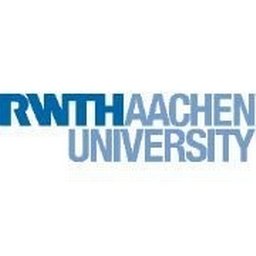Job Opportunities in Germany

October 21, 2024
Universität Hamburg
Hamburg
OTHER
Research Associate for the Project “Formation and Evolution of Supermassive Black Holes”
Research Associate for the Project “Formation and Evolution of Supermassive Black Holes” § 28 Subsection 3 Hmb HG
Institution Faculty of Mathematics, Informatics and Natural Sciences, Department of Physics
Salary level EGR. 13 TV-L
Start date01.04.2025 (negotiable), fixed for a period of two years, a further extension for two years is planned depending on the availability of funds (This is a fixed-term contract in accordance with Section 2 of the academic fixed-term labor contract act [Wissenschaftszeitvertragsgesetz, Wiss Zeit VG]).
Application deadline22.11.2024
Scope of workpart-time
Weekly hours75 % of standard work hours per week
We invite applications for one position in extragalactic astrophysics at Hamburg Observatory (Universität Hamburg) within the DFG-funded Emmy Noether Research Group led by Dr. Jan-Torge Schindler.
The group studies the formation of growing supermassive black holes (SMBHs) and their subsequent evolution in the early Universe. We aim to understand the processes by which SMBHs form, how they grow to their observed masses and how they influence the evolution of their host galaxies. Furthermore, we use actively growing SMBHs - quasars - as probes of the cosmic large-scale structure and the physical evolution of the intergalactic medium.
In order to address these science questions, we use wide-area photometric surveys to discover new quasars at high redshift (using Euclid, LSST, data mining, machine learning, spectroscopy), conduct follow-up observations to characterise them (with optical, near-infrared, and sub-mm observations, spectroscopic modelling) and analyse their demographics (e.g., luminosity function, mass function using statistical inference).
The group studies the formation of growing supermassive black holes (SMBHs) and their subsequent evolution in the early Universe. We aim to understand the processes by which SMBHs form, how they grow to their observed masses and how they influence the evolution of their host galaxies. Furthermore, we use actively growing SMBHs - quasars - as probes of the cosmic large-scale structure and the physical evolution of the intergalactic medium.
In order to address these science questions, we use wide-area photometric surveys to discover new quasars at high redshift (using Euclid, LSST, data mining, machine learning, spectroscopy), conduct follow-up observations to characterise them (with optical, near-infrared, and sub-mm observations, spectroscopic modelling) and analyse their demographics (e.g., luminosity function, mass function using statistical inference).
Your responsibilities
Duties include academic services in the project named above. Research associates may also pursue independent research and further academic qualifications. They may also pursue doctoral studies outside of working duties.
We are looking for a candidate with a keen interest in these topics and the high redshift Universe.
The prospective candidate will work on questions related to the formation of supermassive black holes in the context of one of the largest James Webb Space Telescope (JWST) treasury programs (COSMOS-3D). As part of a larger collaboration, they will be involved in all aspects of the project, from data reduction to final analysis.
Duties include academic services in the project named above. Research associates may also pursue independent research and further academic qualifications. They may also pursue doctoral studies outside of working duties.
We are looking for a candidate with a keen interest in these topics and the high redshift Universe.
The prospective candidate will work on questions related to the formation of supermassive black holes in the context of one of the largest James Webb Space Telescope (JWST) treasury programs (COSMOS-3D). As part of a larger collaboration, they will be involved in all aspects of the project, from data reduction to final analysis.
Your profile
A university degree in a relevant field.
Applicants should hold a Master’s degree in Physics, Astronomy/Astrophysics, or equivalent at the time of starting the position. Excellent English proficiency, good communication and team skills are also required.
Knowledge in extragalactic astrophysics and proficiency in coding (e.g., with python) is desirable. Demonstrated experience in astronomical data reduction (imaging & spectroscopy), especially regarding observations of the Hubble or James Webb Space Telescopes (using their pipelines or the “grizli” software), are additional assets.
Please do not hesitate to contact Jan-Torge Schindler via the below email address in case you have any questions about the position, the selection process, or the possible research projects. More information about the group can be found on jtschindler.de
A university degree in a relevant field.
Applicants should hold a Master’s degree in Physics, Astronomy/Astrophysics, or equivalent at the time of starting the position. Excellent English proficiency, good communication and team skills are also required.
Knowledge in extragalactic astrophysics and proficiency in coding (e.g., with python) is desirable. Demonstrated experience in astronomical data reduction (imaging & spectroscopy), especially regarding observations of the Hubble or James Webb Space Telescopes (using their pipelines or the “grizli” software), are additional assets.
Please do not hesitate to contact Jan-Torge Schindler via the below email address in case you have any questions about the position, the selection process, or the possible research projects. More information about the group can be found on jtschindler.de
We offer
- Reliable remuneration based on wage agreements
- Continuing education opportunities
- University pensions
- Attractive location
- Flexible working hours
- Work-life balance opportunities
- Health management, EGYM Wellpass
- Educational leave
- 30 days of vacation per annum
Universität Hamburg—University of Excellence is one of the strongest research educational institutions in Germany. Our work in research, teaching, educational and knowledge exchange activities is fostering the next generation of responsible global citizens ready to tackle the global challenges facing us. Our guiding principle “Innovating and Cooperating for a Sustainable Future” drives collaboration with academic and nonacademic partner institutions in the Hamburg Metropolitan Region and around the world. We would like to invite you to be part of our community to work with us in creating sustainable and digital change for a dynamic and pluralist society.
The Free and Hanseatic City of Hamburg promotes equal opportunity. As women are currently underrepresented in this job category at University of Hamburg according to the evaluation , Hamb Glei G), we encourage women to apply for this position. Equally qualified and suitable female applicants will receive preference.
Severely disabled and disabled applicants with the same status will receive preference over equally qualified non-disabled applicants.
Instructions for applying
Application deadline
Contact
Reference number
Jan-Torge Schindler
jan-torge.schindler@uni-hamburg.de
+49 40 42838-8427
jan-torge.schindler@uni-hamburg.de
+49 40 42838-8427
Marcus Brüggen
mbrueggen@hs.uni-hamburg.de
+49 40 42838-8537
mbrueggen@hs.uni-hamburg.de
+49 40 42838-8537
333
Location
Gojenbergsweg 112
21029 Hamburg
Gojenbergsweg 112
21029 Hamburg
Application deadline
22.11.2024
Use only the online application form to submit your application with the following documents:
- cover letter
- CV
- copies of degree certificate(s)
- two reference letters submitted on their behalf by the letter writers send to bewerbungen@uni-hamburg.de
PDF Download
We regret to inform you that this job opportunity is no longer available
Latest Job Opportunities
October 22, 2024
Kolakovic & Partner Personalberatung
Leiter Einkauf (m/w/d)
Sömmerda
OTHER
View DetailsOctober 22, 2024
Pflegewohnpark der Generationen GmbH & Co. KG
Pflegefachkraft (m/w/d)
Erfurt
OTHER
View Details
October 22, 2024
RWS Gebäudeservice GmbH
ID 1531 - Reinigungskraft (m/w/d) in 04603 Nobitz OT Ehrenhain - Teilzeit
Nobitz
OTHER
View Details
October 22, 2024
RWS Sicherheitsservice GmbH
Gebietsleitung Sicherheitsdienstleistung (m/w/d) für Thüringen
Erfurt
OTHER
View Details
October 22, 2024
Pflegedienst Nicole Tobias GmbH
Pflegefachkraft (m/w/d) für 1:1 Erwachsenen-Intensivpflege in Saalfeld
Saalfeld
OTHER
View DetailsOctober 22, 2024
HANGAR 901 Aircraft Maintenance GmbH
Backoffice im administrativen Bereich (m/f/d) / Teilzeit (20h)
Erfurt
OTHER
View DetailsSimilar Jobs

September 13, 2024
Leibniz-Zentrum für Agrarlandschaftsforschung (ZALF) e. V.
Research associate “Biodiversity impact assessment”(f/m/d) with the opportunity for preparing a PhD Thesis
Müncheberg
OTHER
View Details
September 14, 2024
RWTH Aachen University
Research Assistant/Associate (f/m/d) - PhD position - Hearing Technology and Acoustics - Audiovisual Psychophysics
Aachen
OTHER
View Details

September 13, 2024
Johannes Gutenberg-Universität Mainz
2 Positions as Scientific Researcher
Mainz
OTHER
View Details
September 13, 2024
MEYER WERFT GmbH
Abschlussarbeit (Bachelor oder Master) im Bereich „Research and Technology“ im Product Development Cobot Systeme
Papenburg
View DetailsSeptember 13, 2024
SPLENDID RESEARCH GmbH
Researcher/ Projektleiter (m/w/d)
Hamburg
OTHER
View DetailsNew Jobs from This Company

October 21, 2024
Universität Hamburg
Technische Assistenz Algensammlung (MZCH)
Hamburg
OTHER
View Details
October 21, 2024
Universität Hamburg
Wissenschaftliche:r Mitarbeiter:in Bankbetriebslehre und Behavioral Finance
Hamburg
OTHER
View Details

October 18, 2024
Universität Hamburg
Vertretung einer Professur für Literatur Japans
Hamburg
OTHER
View Details
September 19, 2024
Universität Hamburg
Wissenschaftliche:r Mitarbeiter:in Fachgebiet Personalwirtschaft
Hamburg
OTHER
View Details